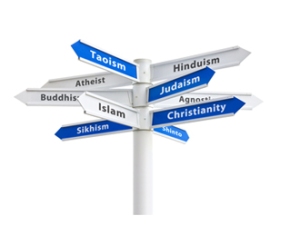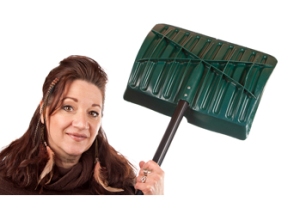This blog post originally was published on Huffington. Although Thanksgiving is behind us, this post can be very helpful for the upcoming holidays.
Lots and lots of people are dreading Thanksgiving this year. 47.9 percent of us voted for Hillary, and 47.1 percent voted for Trump. That means that at our holiday tables we are likely to have some people in mourning and some rejoicing. Our first instinct is to dread meeting these folks or to call them “Crazy, self righteous, intellectual liberals” or “racist, homophobic, anti-semitic neanderthals.” But hold off, there’s an opportunity here, an opportunity to understand and to heal our national rifts. Think of it as our patriotic duty to try. But you ask, how can I possibly have a civil conversation other than by changing the subject with those people?
First, forget the name calling! While we were taught, “sticks and stones will break our bones and names will never hurt us,” name-calling definitely stops conversations. If we learn nothing else from this election, we have learned that labelling and shaming inhibits discussion and prevents both sides from expanding their analysis. Second, we should look at ourselves and ask if we behave like those we demonize.
Talking politics with your extended family members may be as pleasant as reclining on a bed of nails, but in this contentious post election season it is hard to get away from it. I’ll pass over the bland advice of being compassionate and understanding and instead arm you with strategies that might spice up your meal and make it more palatable.
Ok, I know it is not easy, but if we want to prevent civil war both in and out of your four walls, and if you want to ensure Grandma’s corn souffle isn’t poisoned, begin by re-connecting on a very human and family level. “What is new?” “How is work?” “How are the kids?” Small talk is more than trivial. It is a way to share your lives. During this conversation, you might find something you have in common, perhaps the Chicago Cubs victory, perhaps your surprise at the election results, even if you have differing opinions on that result. Humor can be a big help here and will help make sure that the stuffing is the only thing heating up. Only after connecting can you begin to engage your relatives in a productive discussion about why they voted for Donald Trump or for Hillary Clinton. You might ask them what they hope Trump might achieve. A good question can take the place of name-calling and mudslinging. Besides if we can’t manage for three hours with people we know, how can we expect the country to survive? Think of this as a practice round.
But you say, “My relatives are just out to bait me — they’re looking for a fight.” Of course, they may be thinking the same about you. They wonder how you could possibly have voted for Hillary or for Trump. Instead of engaging in verbal warfare, divert the conversation. “ We both love our family. We are lucky to live in America where power is transferred, however reluctantly, without war. Aren’t we lucky mom put the mince pie to rest this year. The pumpkin pie is so much better. (But be careful here, because undoubtedly someone in the family likes the mince pies.)” Tone is everything. A smile and a happy voice signals a willingness to engage; a sneer signals disdain.
If you want to expand your understanding and maybe have an interesting conversation, find one issue you are curious about, one where you truly would like to find out how and why someone could possibly think differently from you. Then ask a question with kindness and curiosity. Don’t plan to convert or convince. Remember almost 50 percent of the population considers your vote just as miscast as you consider theirs. Asking questions and finding out how others think is far less boring than just being nice and avoiding any “hot” topics. Being with your extended family might just turn out to be a fascinating experience, a chance to find out how the other half thinks.
If the answers to questions in the political arena were easy and there were no confounding influences we would have solved all human problems. Just as each family member has a right to dislike some things on the table, adults have a right to differ, though not a right to harass or demonize others. Freedom of speech does not extend to libel. If we want to make peace in our families, we have to try — and I mean really try — to see things to understand the other’s thinking. Only then can we differ with respect. If nothing else, the turkey will definitely taste better without the animosity.




